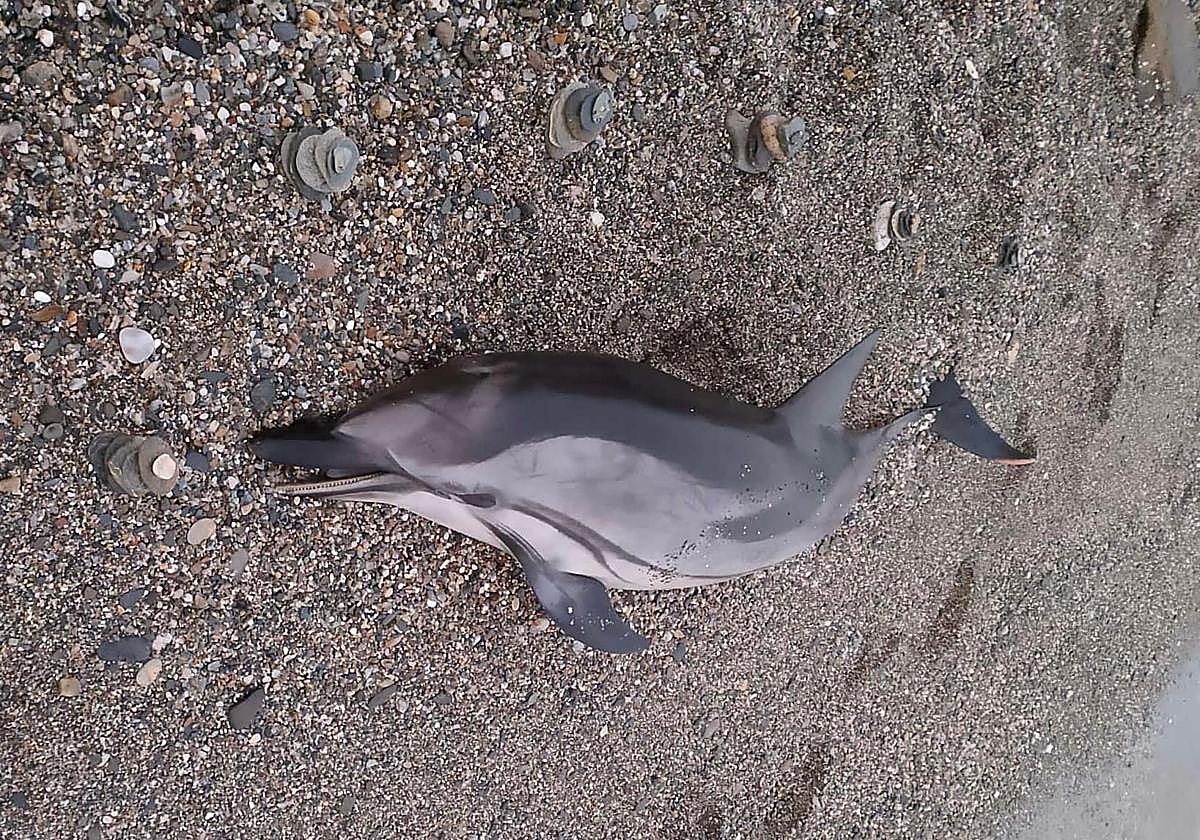A 70-kilo dolphin found dead on Torrenueva Costa beach
The Aula del Mar marine conservation association said that such an appearance on the shores on the south coast of Spain is a "relatively normal" occurence and usually due to "an illness or accident"
Diego Callejón
Granada
Friday, 4 October 2024, 09:32
Local esidents strolling along the beach in Torrenueva Costa in Granada province in the early hours of Wednesday 2 October came across the sad sight body of a dead dolphin, which was about two metres long and weighed about seventy kilograms. According to information from the emergency services, the first call about the sighting came at 5.30am.
Local Police and Guardia Civil officers were sent to the scene, the stretch of beach located in front of Calle Juan de Garay. Torrenueva Costa town hall was also notified and the councillor for the environment contacted the Andalusian centre for the recovery of endangered species (CREA), who removed the animal.
Antonio Martín Olid, one of the witnesses, said that the action of the Guardia Civil officers and Civil Protection volunteers was swift. The officers guarded the body until the arrival of the CREA.
The cause of the dolphin's death is not known at the moment, something that will be determined by the necropsy, which is the responsibility of the Andalusian marine environment management centre (CEGMA).
"Relatively normal"
Speaking to SUR's sister newspaper Ideal in Granada province, Julio de la Rosa, director of the Aula del Mar in Granada, explained that dolphins washing up on Andalucía's beaches is a "relatively normal" phenomenon. According to the expert, these animals "retreat to the coast when they are going to die" due to illness or an accident resulting from a collision with a boat or fishing.
De la Rosa explained that the weather was probably not a factor, given that it has been fairly stable recently. He also stressed that "there is a lack of education" with regard to these findings, as "they are sad events" but "they happen from time to time".
He added that the management of large sea animals washing up on the coast has a significant administrative cost. "If they are alive, they are taken to recovery centres, but it is difficult for them to survive there," he said. Turtles, on the other hand, tend to have "a high recovery rate" in specialised clinics.
